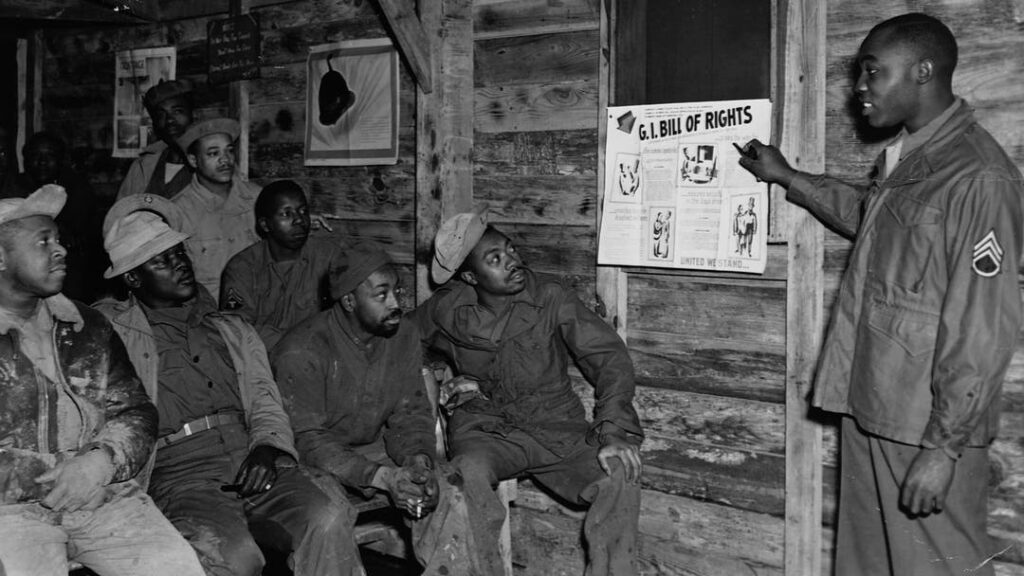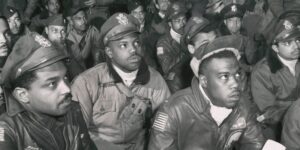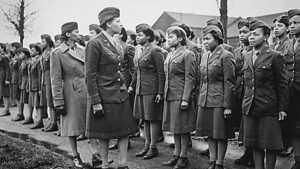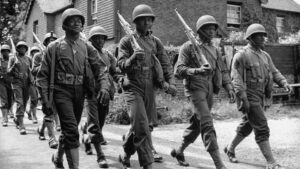Articles

The GI Bill’s Effect on Black Veterans
From the start, Black veterans had trouble securing the GI Bill’s benefits. Some could not access benefits because they had not been given an honorable discharge—and a much larger number of Black veterans were discharged dishonorably than their white counterparts.
Veterans who did qualify could not find facilities that were delivered on the bill’s promise. Black veterans in a vocational training program at a segregated high school in Indianapolis were unable to participate in activities related to plumbing, electricity and printing because adequate equipment was only available to white students.
Simple intimidation kept others from enjoying GI Bill benefits. In 1947, for example, a crowd hurled rocks at Black veterans as they moved into a Chicago housing development. Thousands of Black veterans were attacked in the years following World War II and some were singled out and lynched.
Though Rankin had lost the battle to exclude Black men from VA unemployment insurance, it was doled out inequitably. Men who applied for unemployment benefits were kicked out of the program if any other work was available to them, even work that provided less than subsistence wages. Southern postmasters were even accused of refusing to deliver the forms Black veterans needed to fill out to receive their unemployment benefits.
Black veterans and civil rights groups protested their treatment, calling for protections like Black involvement in the VA and non-discriminatory loans, but the racial disparities in the implementation of the GI Bill had already been set into motion. As the years went on, white veterans flowed into newly created suburbs, where they began amassing wealth in skilled positions. But Black veterans lacked those options. The majority of skilled jobs were given to white workers.
By: Erin Blakemore
Date : June 21, 2019
Source: History.com
Releated Posts

How the GI Bill’s Promise Was Denied to a Million Black WWII Veterans
When Eugene Burnett saw the neat tract houses of Levittown, New York, he knew he wanted to buy one. It was 1949, and he was ready to settle down in a larger home with…

WWII forces got their mail
An army unit known as the “Six Triple Eight” had a specific mission in World War II: to sort and clear a two-year backlog of mail for Americans stationed…

The Tragic, forgotten history of black military soldiers
In the week after the election, the Equal Justice Initiative, of Montgomery, Alabama, released a new report—a fifty-three-page addendum to last year’s “Lynching in America,” an unprecedentedly…


